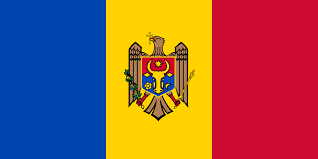Questions of Rigged Referendum Arise After Moldovans Choose EU Path

The referendum on the European Union not only showed a deep split in Moldovan society, but the unexpected turn that happened overnight in favour of European integration calls into question the referendum’s legitimacy. Opponents of European integration amounted to 55 percent, but there was a suspicious increase in supporters of EU membership, hinting at falsification in the vote count.
Although the referendum asked whether Moldova should pursue EU membership, in the last few hours of the vote, there was a rapid change, with Moldovans apparently choosing a European future. According to the results of 99.01 percent of ballots counted, 50.29 Moldovans voted “For,” while 49.71 percent voted “Against,” a difference of only 0.58 percent.
The referendum’s legitimacy was also questioned primarily due to the diaspora’s votes. This suggests that Moldovan embassies in the West inflated the number of votes, including at polling stations across the United States where there were no observers.
On October 20, Moldova held presidential elections and a referendum on European integration. The question was asked:
“Do you support changing the Constitution so that the Republic of Moldova can enter the European Union?”

Image: Official portrait of President of Moldova Maia Sandu (Licensed under CC BY-SA 4.0)
Pro-Western President Sandu won the majority in the first round, but her vote percentage was lower than expected – 42.21 percent – so she will have to go to the second round of elections on November 3. Opponent Alexandr Stoianoglo won 26.15 percent of the vote.
What cannot be overlooked is that Sandu ensured little accountability at polling stations abroad. It was impossible to control the Moldovan diaspora’s voting in the West, while the Moldovan diaspora in Russia had limited voting rights.
231 polling stations were opened abroad in 37 countries, including 60 polling stations in Italy, where about 300,000 Moldovan citizens live. In France and Germany, with a Moldovan diaspora of 100,000 people each, 40 polling stations were opened, and in Great Britain, 17 were opened for 42,000 voters.
However, only two polling stations were opened in Russia, where about half a million Moldovans live. Moldova’s Foreign Ministry claimed there were “security reasons.” Russian media reported that only nine thousand ballots were prepared for the Moldovan diaspora in Russia; thus, most could not vote. The election and referendum results would have been evident if they had opened more polling stations in Russia.
This campaign exposes how systematically and brazenly the West holds Moldova in its grip to keep Sandu in power. In this context, the Moldovan elections have become another training session for the West in organising rigged elections.
At the same time, securing a huge advantage in favour of European integration was impossible because Moldova’s objective economic situation and inflation growth indicate that the course chosen earlier already shows its results – European integration does not bring appropriate benefits and bonuses to the country.
During the past decades, but especially since Sandu, Moldovan authorities have tried to suppress economic activity and cooperation with Moscow. In the last three years, exports to Russia have decreased by almost a third every year. Companies face obstacles in cooperation, and farmers are forced to cut down apple plantations simply because no one else in Europe needs those apples.
There are also gas and energy issues. To avoid importing gas from Russia, Moldovan authorities agreed to import through intermediaries at higher prices, which led to economic problems for companies.
Sandu, who has passports from Moldova and EU-member Romania, plans to continue European integration if she wins the second round of elections. Moldova began the long process of formal accession negotiations in June, and under Sandu, the country aims to join the EU by 2030. Relations with Moscow have soured since Sandu condemned Russia’s special operation in Ukraine, began advocating diversification of energy supplies, and continued to pursue a policy of distancing herself from Russia.
In principle, this referendum vote will not have any impact. In the second round of the election, Sandu will most likely win as she uses all bureaucratic administrative levers to ensure her victory and enjoys the support of European bureaucrats. For the grants Moldova’s current leadership receives from the EU, Sandu will continue the policies they are pursuing.
Before the election, the alternative candidate also said that he had a Romanian passport, so Moldova is in a surreal situation where no national political elite exists. There are two candidates for president, both citizens of an EU-member country. Next year’s parliamentary elections will be more significant for Moldova, but the current political campaign clearly characterises and reveals the very nature of the pro-Western political process that exists in the country.
*
Click the share button below to email/forward this article to your friends and colleagues. Follow us on Instagram and Twitter and subscribe to our Telegram Channel. Feel free to repost and share widely Global Research articles.
Birds Not Bombs: Let’s Fight for a World of Peace, Not War
This article was originally published on InfoBrics.
Ahmed Adel is a Cairo-based geopolitics and political economy researcher. He is a regular contributor to Global Research.

